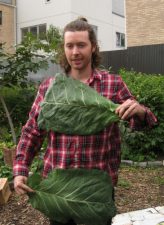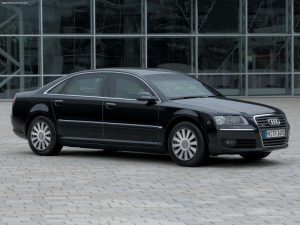With America’s and the world’s financial markets going belly up, it will be interesting to see what happens to the carbon market. Smart CEOs will realize that a less carbon intensive business is better for the bottom line, as most companies can kick a lot of wasteful carbon habits, simply by doing a carbon audit. I’ve written about ways companies can get started, with eight handy tips, over on Carbon Catalog.
This prelude on carbon, comes to introduce the latest story on carbon footprints and offsetting. And it’s one of my favorite companies. One from childhood. The Jaffa orange, the sweet shamouti orange, coming into season as we speak (I just ate a few orange smiles), is getting a carbon label. Read all about it in a story that first appeared in ISRAEL21c, thanks to Green Prophet’s James:
Some of the most delicious oranges eaten around the world are produced in Israel. A famous grower of the Jaffa orange, also known as the Shamouti orange, the sweet, near seedless variety is easy to peel, and a favorite in Europe and North America. People often remember eating Jaffa oranges while growing up.
Taking its name from the city of Jaffa, where the oranges were first cultivated and exported in the late 1800s, modern growers today have a new plan for the old treat. Usually oranges turn from green to orange while on the tree. But when ripe, Jaffa oranges – thanks to a new initiative by the grower and supplier Mehadrin – will soon turn “green.”
The company announced recently that it will start producing carbon labels for its juicy fruit, with the first exports hitting the shelves in the UK. This is an important first step in creating awareness that pollution and greenhouse gases are associated with growing and shipping food.
Working with the Carbon Trust in the UK, Mehadrin has developed a label which clearly states how much global warming-causing carbon dioxide emissions were generated in the growing and shipment of its oranges. From Israel to the UK, one kilogram of oranges produces about 1.25 kg of carbon emissions.
Green oranges can help green business
This is meaningful information for individuals who would like to reduce their impact by buying carbon offsets. Knowing how much carbon is produced in industrial processes also helps businesses understand how to become more energy efficient.
Says Dov Warmen, the business development manager of Mehadrin: “Our story is a little bit wider than the carbon label on oranges,” he says. “The label is a part of the process. We believe as an agriculture company we also have to contribute to greening our country.”
For this new project Warmen’s team worked with the Israel Ministry of Environmental Protection and a carbon consultant company in Israel. With no official accreditation body in Israel, Mehadrin turned to the UK, where there is much more awareness of the factors involved in carbon emissions management.
Mehadrin appears to be the first agricultural company in Israel to account for and label its carbon emissions; it joins one of only a few companies of its kind in the world. Recently, the Israeli clothing manufacturer Bagir, developed a carbon label for its recycled suits, now sold by Sears.
Carbon labels planned for America
The shipment of food around the world is one of the most polluting and carbon-intense expenses for the industry. Although there is a trend in America for people to eat and shop locally, in some cases, it makes more sense environmentally and practically to import food and produce from other countries.
While business is slower right now in America with the weakening dollar, Mehadrin does have longer-term plans for exporting Jaffa oranges and other produce to America with a carbon label.
And for those interested, an Israeli entrepreneur Gideon Greenspan has developed an informative ratings guide – Carbon Catalog – that helps consumers and companies find the quality carbon offsets they are looking for from across the world.
According to media reports, Mehadrin’s sales in 2007 were $200 million, most of which was made in the export business. The company also grows dates, potatoes, avocados, lemons, carrots and pomegranates. It has also been reported that Mehadrin has plans to use its land and orchards as a means to sell valuable carbon credits, which are based on the carbon dioxide emissions the trees naturally sequester.
Established in 1951, Mehadrin has been traded on the Tel Aviv Stock Exchange since 1963. The company cultivates about 3,500 acres of land in Israel, and leases an additional 7,300 from other companies and kibbutzim.
This article was reprinted with permission from ISRAEL21c.
Correction: should be 1.25 kg of carbon, per kg of orange.





Another environmental aspect of oranges is the AMOUNT OF WATER needed to grow the crop.
According to the US Geological Survey (on a very quick and incomplete search) it takes 14 gallons (over 50 liters) of water to grow one orange. So growing oranges in Israel (an arid country) and exporting them is like filling up a bunch of those Mei Eden water jugs, piling them on a boat, and sending them to water rich countries.
No-one would suggest that we should export water, but that is effectively what we do when we export oranges.
Although exporting oranges has been a part of the Zionist Ethos (which I support) for a very long time, we should consider whether that is the best use of our scarce water resources.
I believe that Israeli agriculture should focus on crops with low water use.
At least we don’t export rice.
“From Israel to the UK, one kilogram of oranges produces about 125 kg of carbon emissions.”
Sounds like a lot of carbon. I wonder how it compares to other imported foods and, more importantly, if they are flown or shipped…?